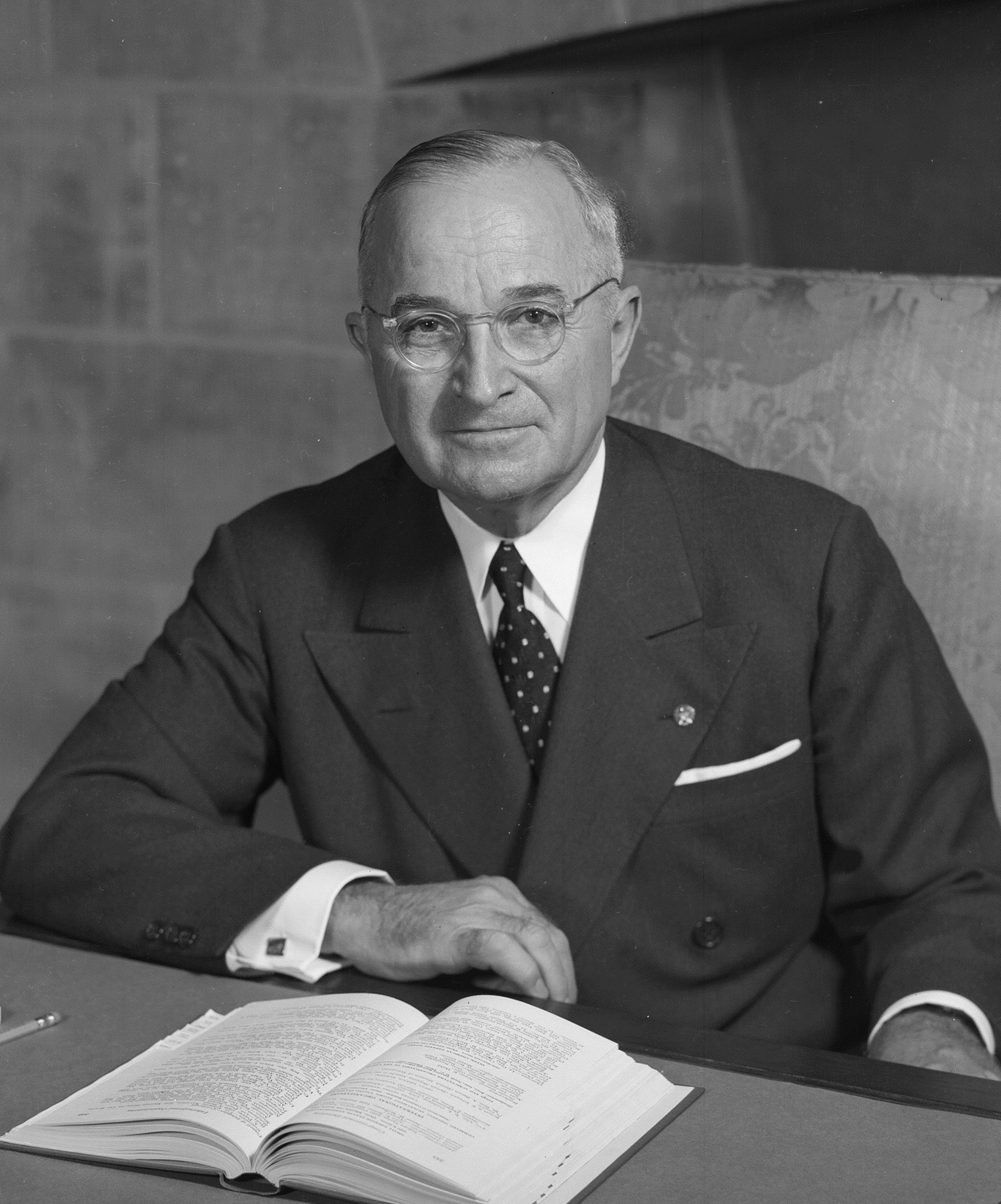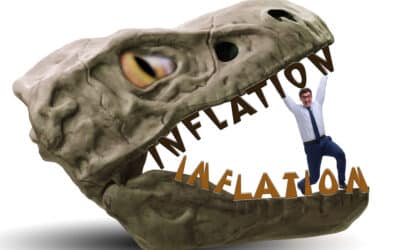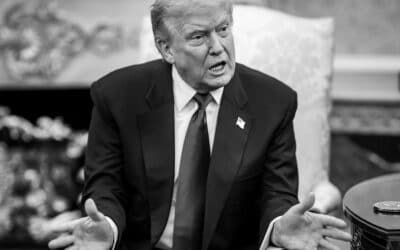“They adored him as no man in a democracy deserves to be adored,” Walter Lippmann wrote, describing progressive worshippers of Theodore Roosevelt in 1916.
American historians suffer from the same malady, a predisposition to hero-worshipping chief executives (T.R. included).
What causes this persistent love affair? Is it a preference for studying big changes and swift actions, which occur most often under muscular presidents? Is it a sympathy for big government and the men who implemented the policies liberal historians themselves prefer?
Whatever the cause of this fondness, the resulting public discourse is predictable, boring, lopsided, and a poor indicator of historians’ collective ability to judge in a manner contrary to establishment narratives (most of which these same historians formulated anyway).
That is the conclusion drawn from the 2021 presidential historians survey, released Wednesday by C-SPAN. The fourth such survey conducted since 2000, it polls historians and “observers of the presidency” about their opinions and rankings of past executives based on 10 “leadership characteristics.”
Each survey has used the same benchmarks, including criteria such as “Crisis Leadership,” “Economic Management,” “International Relations,” and “Vision.” The respondents are not the same each time, and the pool has grown with each new survey. This year 142 people were consulted, including names that will be familiar to readers such as Lee Edwards of the Heritage Foundation, Paul Kengor from Grove City College, Calvin Coolidge biographer Amity Shlaes, TAC’s Scholar-at-Large Brad Birzer, and TAC’s former editor Robert Merry. Individual responses are not published, and the inclusion of these conservative heretics was not enough to counteract the great liberal mass.
Ranking our 44 former presidents in order, the survey showcases a top-10 list featuring Abraham Lincoln, George Washington, Franklin D. Roosevelt, Theodore Roosevelt, Dwight D. Eisenhower, Harry Truman, Thomas Jefferson, John F. Kennedy, Ronald Reagan, and Barack Obama.
Needless to say, there are problems.
Asking the wrong questions. In ten categories, which go so far to include things such as “Relations with Congress,” historians are not asked what is formally the president’s only duty: maintaining their oath to uphold and defend the U.S. Constitution.
Did they upraise our founding document while in the White House? Did they shield it from bad actors, or were they its biggest violator?
Or what about the question of liberty? Did they leave the country freer than when they found it? Or was the average American left with less choice after their term in office?
When the most important questions are ignored, don’t be surprised when the answers are so miscalculated.
Recency Bias. Modern Americans will be ecstatic to know that in the 232-year history of our Republic, a majority of our greatest presidents are within living memory. Yes, even our current commander-in-chief, Joe Biden, has been alive during six of the top ten rated administrations.
The survey is handicapped by a severe recency bias, where historians prefer to relish the memories of modern presidents whose leadership they’ve personally experienced rather than long-dead 19th century politicians, whatever their qualifications.
Donald Trump. The most headline-grabbing portion of the survey was naturally the placement of our recently departed (what else do you call someone banned from Twitter?) Donald J. Trump.
The real estate mogul turned one-termer finds himself ranked the lowest of the low, above only the permanently condemned triumvirate of Franklin Pierce (who witnessed his 11-year-old son decapitated in a train crash on the way to his inauguration), Lincoln-successor and impeached reconstructionist Andrew Johnson, and indecisive James Buchanan, paralyzed in 1861 between his own unionism and fidelity to the Constitution.
And Trump is placed dead last out of all presidents in the categories “Administrative Skills” and “Moral Authority.”
The politicized, overwrought nature of this determination is hard to exaggerate.
Let’s compare, briefly, with his immediate Republican predecessor, George W. Bush. The man whose time in office witnessed the largest terrorist attack in U.S. history, who instituted a secret, international torture regime, who conducted two failed and illegal wars, and who oversaw the meltdown of the U.S. economy and commensurate corporate bailout, is in 29th place and beats Trump in every benchmark save “Economic Management” (where Trump outmaneuvers him by half a point).
Perhaps Trump should take up painting, as becoming an artist has improved Bush’s ranking by seven slots since 2009.
Trump even scored worse in the category “Pursued Equal Justice for All” than eight of our ten slave-owning presidents, and worse than Woodrow Wilson, the Oval Office’s staunchest segregationist.
How did the historical profession become more hysterical than Rachel Maddow on her worst day?
Moral Authority. When respondents are given the survey, they are not provided with explanations of what the categories represent. Each historian is tasked with interpreting the titles as they see fit. That allows a benchmark as open-ended as “Moral Authority” to be construed any number of ways.
Harry Truman is ranked ninth in this category, helping to solidify his placement in this survey as the sixth greatest president. In all likelihood, foremost in respondents’ minds was his desegregation of the military or anti-communism.
But to weigh that in aggregate against his incineration of Hiroshima and Nagasaki, his decision (contra his military commanders) to atomize hundreds of thousands of civilians in the only use of nuclear warfare in Earth’s history, is sadistically sick.
To conclude that Harry Truman, or the Japanese-American concentration camp superintendent Franklin Roosevelt, or the prosecutor of Constitution-waving dissidents Woodrow Wilson, carry more moral authority than peace presidents such as Martin Van Buren or Grover Cleveland, is inhuman, barbaric, and wicked.
There is a litany of other peculiarities.
John Quincy Adams is ranked 17th for reasons not immediately apparent. Adams lived a remarkable public career, stretching from a consequential assignment as secretary of state to a long anti-slavery advocacy career in the House. But none of it occurred during his four years as president, a period of uneventful political gridlock. More likely than not most of the respondents answered while thinking fondly of Anthony Hopkins in Amistad rather than the Tariff of Abominations.
Somehow the impeached Bill Clinton still ranks 23rd in the category “Relations with Congress.”
FDR is crowned the most successful in the category of “International Relations” and third in “Economic Management” despite manipulating the U.S. into the most destructive war in world history and captaining the longest, deepest economic depression the American people have ever experienced.
Martin Van Buren is ranked 30th in “Vision/Setting an Agenda” despite establishing the Independent Subtreasury, and delineating the most economically successful banking system in American history.
Barack Obama has entered the hall of “great presidents,” likely based more on nostalgia for the pre-Trump era than Obamacare (still middling in popularity) or the Iran nuclear deal (since withdrawn).
Ulysses S. Grant has continued his modern revitalization with a 13-slot improvement since 2000, demonstrating that good intentions do mean more than successful implementation.
The organizers of the survey do not pretend that it is “scientific.” An objective ranking of the U.S. presidents is as impossible as an objective ranking of literature, or genre of art, or any other tenet of the humanities.
What can be said about C-SPAN’s survey of presidential historians is that it depicts popularity among the public more than performance in office, and contains much more about daily politics than a broad historical perspective.
This article was originally featured at The American Conservative and is republished with author’s permission.
































